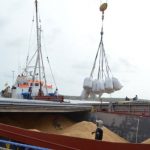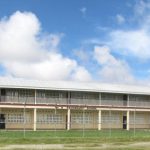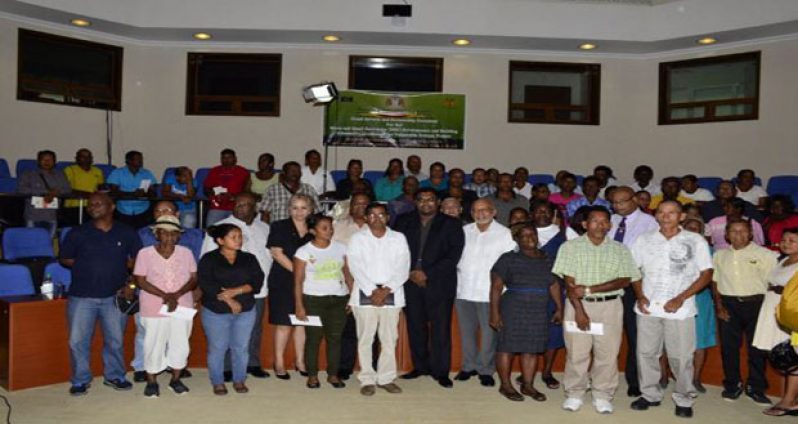PRESIDENT Donald Ramotar has stated that Guyana’s economic performance in the face of the recent global economic recession is commendable when viewed against the performance of other countries.During his second interview on the programme ‘At Home with the President’, which focused on the economy and job creation and was aired last evening on the National Communications Network, the Head of State said the worldwide economic downturn which began in 2008 affected Guyana’s largest trading partners, USA and Europe, and negatively impacted the Caribbean, causing several countries to have to either lay off workers or reduce or freeze wages in order to cope.

So, “In that context, Guyana has done extremely well,” the President said.
The estimated economic growth for 2014 was pegged at 4.5 percent, the President said. Himself an economist, the Head of State noted that this marks nine years of uninterrupted growth, the longest in Guyana’s history, and “shows (that) Guyana practises good governance and good husbandry of the economy…while keeping inflation rate at around 3%. The President deemed this an achievement in itself for the country.
President Ramotar also pointed to the country’s growing investment portfolio over the past three years, and to major investments in agriculture, mining and non-traditional sectors — in particular small business development.
He also highlighted some of the challenges faced by the sectors, and singled out the rice industry, which has broken production records over the past year but which is encountering some difficulty in securing profitable markets for the farmers.
Gold has also played a major role in the economy, the President explained, but since Guyana is a “price taker” and the prices are fluctuating internationally, “sometimes it has been very good when it’s high; but sometimes it has been low, and sometimes this has caused difficulties. So, while on the production side it has done extremely well, there is still some amount of uncertainty as far as the markets are concerned”, he said.
This notwithstanding, he said gold has made an outstanding contribution to the development of the local society.
Looking at sugar, which he said has also contributed immensely, he reminded that this was adversely affected when the European Union reduced the preferential prices of sugar purchased, and this precipitated the need to restructure the industry.

“Last year, the price of sugar fell by about 50% of what it was in 2013, so while the industry is recovering its production capacity and showing brilliant signs of recovery, the international prices at this time are very unfavourable.
“Hopefully, by the second crop of this year, prices will be able to go up again, and that will certainly help the sugar industry to continue to play the major role that it has played in our economy for centuries,” the President said.
Some of the restructuring efforts involve the examination of new revenue streams, such as the sale of molasses, not only in bulk, but in small quantities; production of new types of sugar, and co-generation of electricity.
Small businesses, which have been expanding over the years, have also positively impacted on the local economy, President Ramotar disclosed.
He mentioned that government has actively pursued and obtained financing at low interest rates to assist small entrepreneurs, and this, he said, has caused many businesses to expand their operations.
“In the Rupununi now, they are not only producing peanuts, but peanut butter. They have a market now, specifically the big schools that they have there, because the government provides meals and snacks, and they have a ready market”, the President disclosed.
Job creation remains a top priority for government, hence government is preparing for a knowledge-based society to cater for Guyana’s future needs, President Ramotar said.
Education is key to the development of any society and its modernisation, the President reminded, hence the drafting of the Education Reform Bill that was laid in the Parliament to modernise the sector. Passage of this bill has unfortunately been halted after the prorogation of Parliament.
It was noted that, even with the building of new schools across the country, another factor that will have to be taken into consideration is the redesigning of classrooms to meet future needs, even as the country continues to prepare persons to meet the demands of job opportunities that are “coming on stream”.
President Ramotar expressed optimism that Guyana will soon become an oil and gas producer; and this, he said, will create a lot of jobs “directly and indirectly in a spin-off way”. But he added that the only way for Guyanese to benefit from these opportunities is to have the required training; hence the push to ensure that all students have at least a sound secondary-level education.
Accordingly, a stronger focus is being placed on Science, Technology, Engineering and Mathematics (STEM) subjects to ensure that persons are competent enough to fill the high-tech positions which are set to be available in the future.

Touching on the conditions for existing workers, the President said the minimum wage has “gone up greatly over the years”, and some employers have even approached government to import more labour.
The income tax threshold has also been increased, and this has provided more expendable income to workers.
Other benefits which assist the working class include the free distribution of text books and provision of uniforms, hot meals and snacks for children in schools; the $10,000 cash grant; free health services; and even the housing programme, which has ensured that more than 100,000 Guyanese families each owns a home.
Once re-elected, President Ramotar said, workers can continue to look forward to better paying jobs and greater opportunities. He reminded of the emergence of the oil and gas sector, and modernization of the agriculture sector, which will bring more job opportunities.
The growth in the private sector, which will also help in these goals, the president said, is due to the government’s investment in infrastructure such as roads and bridges.
The main issue, however, remains the provision of cheap, reliable electricity to enable the faster growth of the economy; and for the president, the Amaila Falls Hydro Power Project remains a priority. Advancement of this project has been affected by the parliamentary opposition’s non-support.
Government’s effort to make available alternative energy has resulted in the decision to offer duty-free concessions to importers of solar panels and other generating equipment, such as low-energy bulbs. The move to reduce electricity tariffs and fuel prices in light of the drop in international oil prices, and even the reduction of property taxes, will also benefit Guyanese across the board.




.png)









